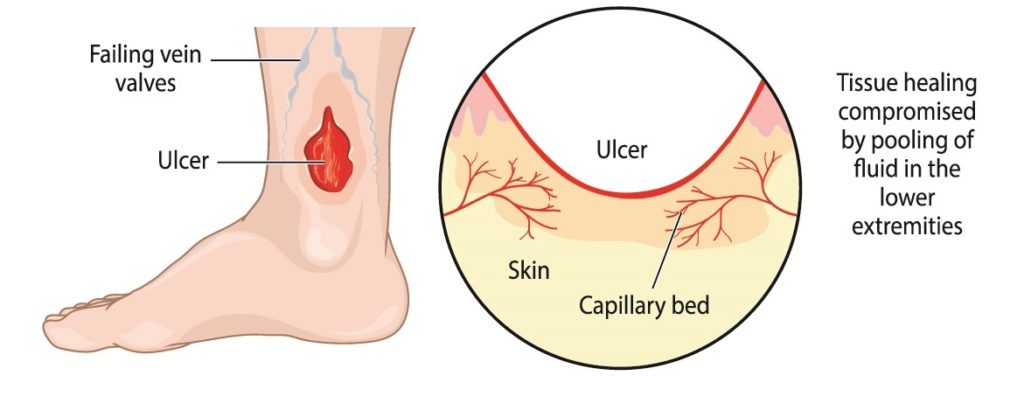You can expect cut, blisters, and sores to heal themselves. In most cases, with a little maintenance and cleaning, our bodies do amazing work of healing themselves. If the wound doesn’t heal within four to six week, or if it begins to appear more swollen in appearance, like becoming redder or becoming swollen, or emitting a foul smell, it’s an indication that something is not right. A minor sore may turn into a leg or foot wound that won’t heal. If it’s not treated, this can cause serious complications and even an Amputation.

It’s time to get assistance if you’re not capable of healing a wound.
Why do some wounds not heal
Knowing the reasons why a wound won’t heal can help you and your doctor decide the best treatment.
In the beginning, if you suffer from diabetes, you’re more at risk risk of foot and leg ulcers that don’t heal well. A high blood sugar level can harm nerves, and you’ll not feel any injuries. Additionally, it can hinder blood flow and makes it hard for minor cuts to heal.
Poor circulation is another main reason that is linked to venous and arterial ulcers. If your arterial arteries aren’t performing their job, you won’t get enough oxygen and nutrients to allow your skin to heal.
If you spend much of your time either lying or sitting down because of mobility issues, you may be prone to developing pressure ulcers (bedsores) another type of wound that is very difficult to heal if it is not treated appropriately.
Aside from age, other elements, like certain medications (such as blood thinners) and autoimmunity disorders, or poor nutrition, can hinder healing. Sometimes it’s a combination these conditions that cause an injury last.
How long does healing last and what if it doesn’t?
You might be wondering what you should consider the “normal” healing process is. In reality, the amount of time required to heal varies based on your condition and type cut. A small blister or cut may heal in a couple of weeks. But if you’re dealing with deep foot ulcers or leg wounds aren’t healing, it might take up to 12 weeks in the event that things are going smoothly.
Do not put off seeking professional wound care if do not see any improvement in the next four to six weeks. The time is now to get professional help for your wound because the longer a wound is left open, the more risky it will become.
Find the right help for you
If your sore won’t heal, it’s not just “bad luck” or something to ignore your body is trying to tell you it needs help. What’s the positive side? There are specialists and treatments that can make a huge difference. In our clinic, we address non-healing leg wounds and foot ulcers. We work in conjunction with other medical professionals to design a personalized plan that helps your body heal.
For advanced wound dressings, or restoring blood flow, or the use of hyperbaric oxygen as a special therapy treatments, there are options out there. We’ll assist you in every step, since we believe that no one should be forced to treat an injury that won’t heal.
Final Thoughts
The pain of a wound that doesn’t heal is more than just a physical problem it affects your entire life. There is hope. If you’re sick of dealing with a leg injury that isn’t healing, a sore that won’t heal or a painful foot ulcer, don’t be reluctant to ask for help. The sooner you reach out for help, the quicker your painful wound will heal and you’ll be able to get back to living the life you deserve.